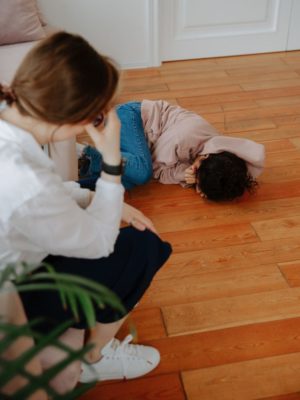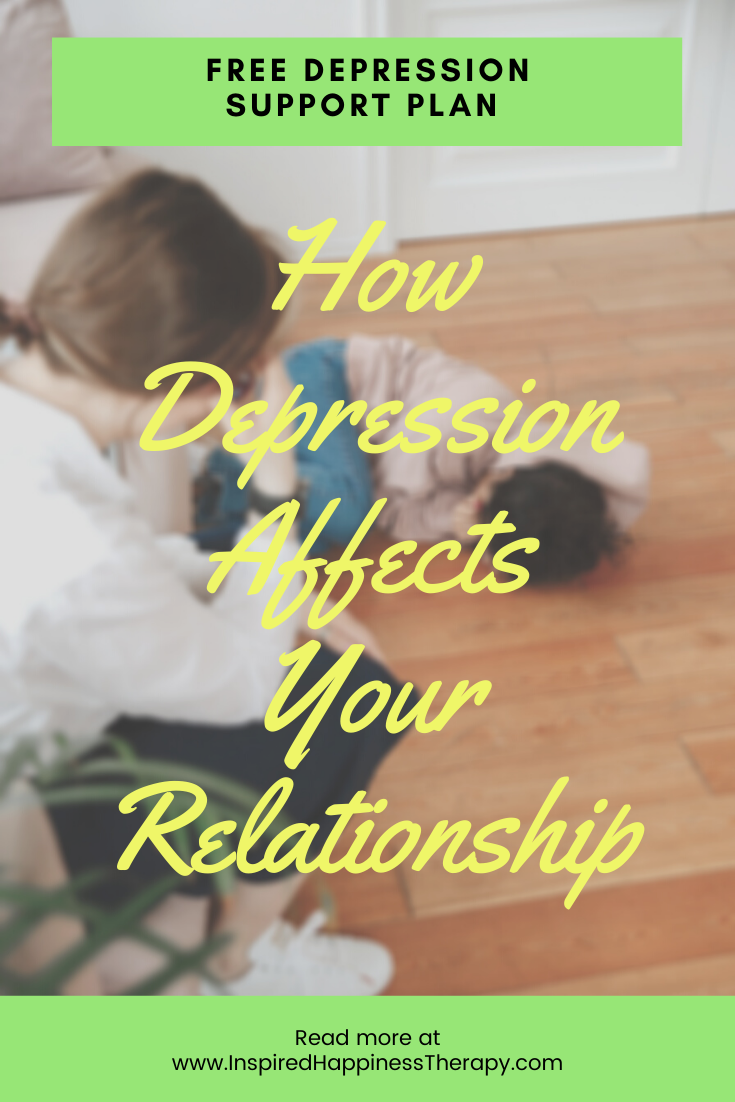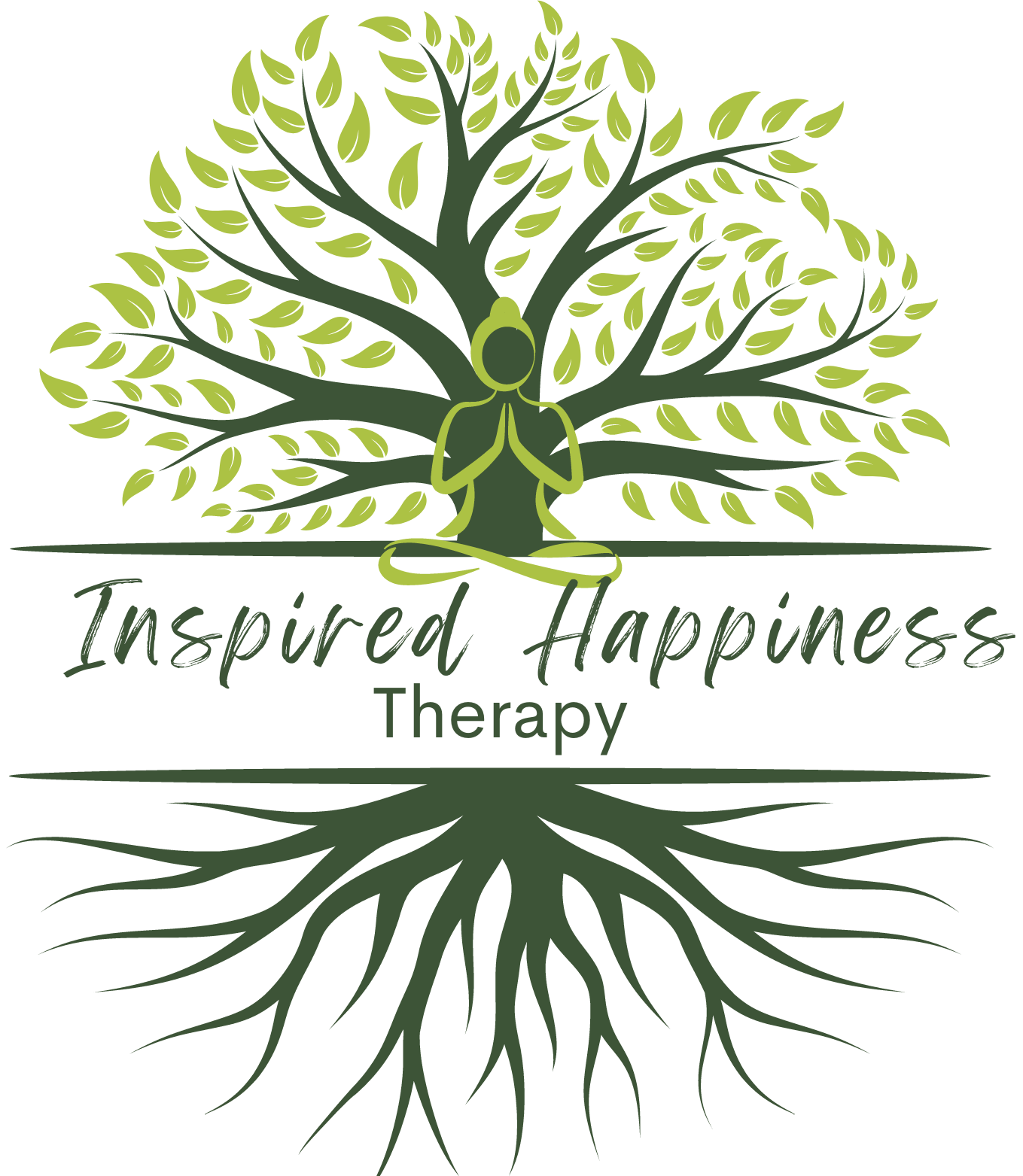How Depression Affects Your Romantic Relationship
You wake up and immediately you are filled with dread. Another day. Even though you slept for over ten hours, your head and limbs feel heavy. You start to think about the day ahead of you – another meaningless day at your meaningless job where nothing you do matters anyway.
Next to you, your partner is getting out of bed and pulling the sheets up to their pillow, straightening the comforter. How is it so easy for them? You wonder. They are already halfway to the kitchen to start the coffee maker as you roll over to stare at the ceiling. Maybe you should call in sick to work today, except you are already in trouble with your boss. It’s not worth the hassle, you decided, so you have to get out of bed. The day stretches out in front of you like a long desert road with no rest in sight. Showering and getting dressed seems like it will take all of your energy, let alone everything that comes after that! You might even start to wish that you had not woken up this morning. Somehow you find the way to push the covers off and get out of bed.

Does The Story Above Sound Familiar?
If so, I am sorry that you have lived with depression in this way. Depression is an energy drain, a hope drain, a numbness that seems insidious, seeping into everything you used to care about and ruining it. For many people loss of interest in things that they used to enjoy is a familiar symptom. It only stands to reason that our depression often begins to impact our relationships too, especially our closest relationships.

What Is Depression?
Depression is a diagnose mental health issue. It is more than just being sad, although sadness and crying are what people usually associate with depression. Depression includes symptoms like:
- Trouble concentrating, remembering details, and making decisions
- Fatigue
- Feelings of guilt, worthlessness, and helplessness
- Pessimism and hopelessness
- Insomnia , early-morning wakefulness, or sleeping too much
- Irritability
- Restlessness
- Loss of interest in things once pleasurable, including sex
- Overeating, or appetite loss
- Aches, pains, headaches, that won’t go away
- Digestive problems that don’t get better, even with treatment
- Persistent sad, anxious, or “empty” feelings
- Suicidal thoughts or attempts
list via WebMD
As you can see, these are symptoms that affect us physically as well as mentally and emotionally. Often depression can make us feel disconnected from everything and everyone around us, our loved ones, even ourselves.
Depression Can Be Isolating
 When it takes all of your energy and effort to complete simple tasks, there is very little emotional energy left to nurture relationships. People who are experiencing depression will often withdraw from friends and family because they do not want them to worry. If you live with your significant other, you might withdraw emotionally or mentally. Although this is often done because you just don’t have anything to give, it unfortunately can be damaging to romantic partners. Especially if your significant other doesn’t know that you have depression or understand what depression is. The inability to be present for the people we love often fuels feelings of guilt and worthlessness. Often, people criticize themselves for having an illness they cannot control, which never makes things better.
When it takes all of your energy and effort to complete simple tasks, there is very little emotional energy left to nurture relationships. People who are experiencing depression will often withdraw from friends and family because they do not want them to worry. If you live with your significant other, you might withdraw emotionally or mentally. Although this is often done because you just don’t have anything to give, it unfortunately can be damaging to romantic partners. Especially if your significant other doesn’t know that you have depression or understand what depression is. The inability to be present for the people we love often fuels feelings of guilt and worthlessness. Often, people criticize themselves for having an illness they cannot control, which never makes things better.
Unfortunately, our relationships can still be damaged by things that are not in our control. That is why it is important to make sure that your spouse or partner knows why you may not be as emotionally available during depressive episodes.

Things to Remember When You Feel Guilt or Shame About Your Depression
- You did not choose to be depressed, no one does.
- Don’t beat yourself up. I once told someone, “If you chose to be depressed, you would definitely have a mental illness.” No one chooses to be depressed, it is an illness like a sprained ankle or Diabetes.
- You are doing the best you can – if you could do better, you would.
- Take things one day at a time, or one minute at a time if a day seems to overwhelming. Focus only on the next thing you have to do. If you are getting out of bed, focus only on getting your feet on the floor – not on standing up, not on walking to the bathroom. Break every task into the smallest actions possible and don’t think any further ahead than the next action.
- You are not weak. Trying to function when you are depressed takes an incredible amount of strength.
- 17 million people in the United States have a depressive episode each year. You are not alone in this.
- It’s ok to ask for help. If you need to see a counselor or therapist, if you need medication, if you need additional help from your loved ones, reach out.
Make Your Relationship Depression-Proof
- If you have been diagnosed with depression before, let your partner know that. While it can be scary to be open, giving them the opportunity to see and accept everything about you, even the parts you don’t like, can deepen trust and intimacy.
- If you have never been diagnosed before, make an appointment with your doctor or a therapist so that you can get a diagnosis. There are physical illnesses that have similar symptoms to depression so it is important to rule those out.
- Give your spouse or significant other information about depression. NAMI, the National Alliance on Mental Illness, has wonderful fact sheets geared toward family members of those with a mental health condition.
- Encourage them to get support. NAMI also offers support groups for family members supporting someone with a mental illness. If you feel up to it, you can attend a support group as well. All of NAMI’s programs a peer-based, meaning family members run the family support groups and a person with a mental illness diagnosis runs the support group for those with a diagnosis.
- Be honest about what you are going through. Explain your symptoms to your partner. Be sure to let them know that what you are experiencing has nothing to do with them. You love them and care about them even when you do not have the energy to show it.
- When you are feeling good, you and your partner can make a “depression support plan” with names and phone numbers of people like your doctor, your therapist, your family or trusted friend, etc. That way if you have another depressive episode they will know what to do. If you would like a free depression support plan worksheet click here to download the PDF!
- In the case that you feel suicidal, let them know who to reach out to if they are afraid. If you have a preferred hospital, put that in your action plan as well.
If Your Loved One is Depressed
If you are reading this and looking for ways to support a depressed loved one, first and foremost remember that they do not choose to be this way. Depression is a medical condition. It is important to remind yourself that your loved one does not have control over their depression – they do however have control over things like practicing self-care, taking their medication, going to therapy, etc. Depression is not an excuse to get away with bad behavior or treating you badly, so also keep that in mind. Just because someone has a mental health concern it does not give them permission to act however they want. Try to use empathy, put yourself in their shoes and think about how you might act if you had the symptoms described above.


Ways to Support a Partner With Depression
Here are some ways to support a loved one, spouse, partner, family member, or even friend with depression.
- Be patient. Energy is often in short supply when someone is depressed. If they take longer to get back to you than usual or cancel plans, let them know that you love them and you are there for them no matter what.
- Ask what you can do to help, but don’t overwhelm them. A “what can I do to help you right now?” or “what do you need?” can go a long way but also don’t ask every hour on the hour.
- Remind them that they do not always feel this way. Depression can feel as though it will never end. Tell them that they have had times when they were not depressed and they will again. Be sure to be gentle and not to say it in a way that invalidates their experience or makes it sound like what they are feeling is no big deal.
- Offer to cook them a meal or bring them food. Ask if they would like you to clean or help with a household task. Remember that people with depression often feel guilty so try to let them know they are not letting you down, you want to help because you love them.
- See if they would like to take a short walk. Sunshine and exercise can both help depression. If they don’t feel like walking maybe they will sit outside and talk with you.
- Do not be afraid to ask if they are feeling suicidal. People are often afraid they will “put the idea in someone’s head” however if someone is feeling like harming themselves, you will not give them an idea they have not already had. Asking directly “are you thinking about suicide” is the best way to ask, since “self harm” or “hurting yourself” might mean different things to different people.
- Similarly, do not be afraid to get them help if they need it. If they are not feeling suicidal, encourage them to go see their therapist or go see one if they never have before. If they are feeling suicidal, you can get help at the National Suicide Prevention Hotline 1-800-273-8255. You can also drive them to the emergency room or call 911 if they refuse to go to the hospital.
- Beware of toxic positivity. Thinking positive is not enough to cure depression. People with depression may be great at positive thinking when they are not in a depressive episode. If you downplay the seriousness of what they are going through, it can feed guilt and shame. Someone with depression cannot “just snap out of it” “look on the bright side” or “think about everyone who has it worse than you.” The existence of people who have it worse does not make a depressed person less depressed. A simple “I care about you” is much more positive to someone with depression than “there is light at the end of the tunnel if you just look.”
Don’t Forget That All Things Change
Whether your are a person with depression or supporting a loved one who has it, this depressive episode will pass. The one constant in life is that things will not be the way that they are forever. This means that both the good times and the bad will not stay the same – there is always something bad and something good right around the corner. Change is the constant in life.
Remember, you matter.
Depression lies.
There is no shame in asking for help. Even the strongest people need help sometimes.

Stacey Aldridge LCSW
Stacey is a therapist in private practice and the owner of Inspired Happiness Therapy and Wellness in Ridgeland, MS. If you are in the state of Mississippi and are interested in seeing Stacey for therapy, please visit the Appointments page.
Have you enjoyed this post?
Use the buttons below to share it on social media so others can find it!


